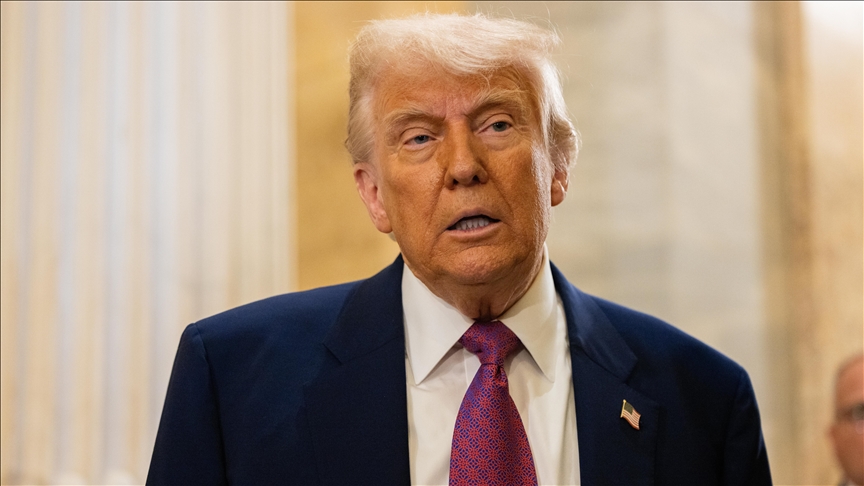Trump appeals court injunction to halt global tariffs
President will take case to Supreme Court if lower court does not rule in his favor

HOUSTON, United States
President Donald Trump filed an emergency motion Thursday with the US Court of Appeals to halt a decision to block his global tariffs.
A three-judge trade court panel ruled on Wednesday that Trump did not have the authority under the International Emergency Economic Powers Act (IEEPA) to implement worldwide tariffs on April 2, which imposed steep taxes on China, Mexico and Canada.
The president cited the IEEPA when he initiated the tariffs, stating that his decision was designed to target fentanyl trafficking into the US and negotiate trade agreements with countries around the world.
Despite the ruling by the trade court to halt the tariffs, the White House said that three trade deals were nearly done and more negotiations were underway. Officials said that the case will be taken to the Supreme Court if the lower court does not rule in the administration's favor.
"There are many, many deals coming. And there were three that basically look like they're done," White House economic adviser Kevin Hassett told Fox Business News, dismissing the ruling by the US Court of International Trade.
"If there are little hiccups here or there because of decisions that activist judges make, then it shouldn't just concern you at all, and it's certainly not going to affect the negotiations," said Hassett.
The trade court's ruling halts Trump's 30% tariffs on China, 25% tariffs on some goods from Mexico and Canada, and 10% universal tariffs on most goods coming to the US from other countries.
The Trump administration believes the ruling will not affect the process of tariff negotiations with other nations.
"Nothing has really changed here," Trump trade adviser Peter Navarro told Bloomberg Surveillance. "We’re still … having countries call us and tell us they want a deal. So, these deals are going to happen."
Most US trading partners in Europe and Asia that are currently negotiating tariff deals with the Trump administration refrained from commenting on the court's injunction and the president's subsequent appeal.
Canada was the exception, with Prime Minister Mark Carney telling the House of Commons that the ruling "is consistent with Canada's longstanding position" that the "tariffs were unlawful as well as unjustified."
The plaintiffs in the case, wine-seller VOS Selections and four other small companies, claimed that the tariffs had severely harmed their businesses. Their attorney, Ilya Somin, said it was "great to see that the court unanimously ruled against this massive power grab by the president."
"The ruling emphasizes that he was wrong to claim a virtually unlimited power to impose tariffs, that IEEPA law doesn’t grant any such boundless authority, and that it would be unconstitutional if it did," said Somin.








